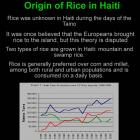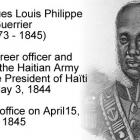ADVERTISEMENT
Virus
What is Microcephaly in a new born baby?
As the Florida Department of Health has confirmed the first case of Microcephaly with a Haitian national who came to give birth in Florida, many people are asking what is it exactly.
"Microcephaly "is an abnormal smallness of the head, a congenital condition associated with incomplete brain development. It is a rare nervous system disorder for which the brain does not grow at a normal pace, the skull doesn't, either. Microcephaly can be caused by a variety of genetic (Congenital Microcephaly) and environmental factors (Acquired Microcephaly). Congenital Microcephaly is passed down through families, caused by defects in genes linked to early brain development. While the latter, or Acquired Microcephaly occurs when the baby is in the womb and fell prey of certain infections Like Rubella, Zika, Toxoplasmosis, or Cytomegalovirus or severe malnutrition or exposure to harmful substances, such as alcohol, toxic chemicals, or certain drugs. Children with Microcephaly in some cases have developmental issues, mild to significant learning disabilities, speech delays, or impaired motor functions, but there are many who do not experience any difficulty at all. Microcephaly is a relatively rare disease affecting about 25,000 children in the U.S. each year.
Preventing Ebola Outbreak in Haiti
Ebola is a disease that may be acquired upon contact with blood or bodily fluids. It can also be as a result of being in contact with an infected human or other animal.
People who are affected with the Ebola virus starts with symptoms of high fever, sore throat, muscle pain, and headaches. Many people who becomes infected with ebola soon started vomiting. They also have diarrhea, and rash.It also causes bleeding both within the body and externally.
Haiti is a country especially vulnerable to diseases. The people of Haiti need to be constantly on the lookout for a disease such as Ebola. To prevent infection from the Ebola Virus, check for infected animals and kill and properly disposing of the bodies.
A rumor has been circulating in Haiti recently concerning a U.N. Mission that was put in place to enlist volunteers form Haiti for Ebola Emergency Response (UNMEER). This was met with a statement form the Haitian government banning any Haitian from volunteering for the task
It stated that the Ministers forbade any agency, including the U.N. Mission for Ebola Emergency Response (UNMEER), from recruiting haitian volunteers for that purpose.
Zika virus infection alert in Haiti
An alert for Zika virus infection in Haiti
The symptoms of Zika fever are similar but milder to Dengue fever or Chikungunya. Recently, the Pan American Health Organization (PAHO/WHO) has circulated an Epidemiological Alert in the Americas. The sample specimens of Aedes and other mosquitoes responsible for the epidemic were collected by the Haitian Epidemiology Department and sent for testing to the Caribbean Public Health Agency (CARPHA) in Trinidad and Tobago-- but those were found negative. No evidence of Zika fever has been found in Haiti. However, as a preventive measure, the Haitian Ministry of Health has decided to maintain its regular surveillance. It has directed health service providers to report immediately, if they ever notice any patient with symptoms of Zika fevers. There is no antiviral treatment of Zika fever, only the symptoms can be lessened by treatments.
cholera outbreak in Haiti
After losing lives and homes, the threat of a cholera outbreak caused further panic among the population in Haiti. 15 cases of cholera were reported in Port-au-Prince when riots began and lasted for days in Cap-Haitien. Five people were reported killed and the UN was asked by protestors to leave Haiti. Answering this, the United Nations stated that the riots were not because of the outbreak, but due to tension over the upcoming elections. They also denied claims that their personnel shot a number of protestors.
Nepales Camp responsible for Cholera in Haiti
Here is a picture of the UN peacekeepers from Nepal that is according to many studies brought the strain of cholera to Haiti. The Cholera epidemic is responsible for the death of many people in Haiti. These studies has established a direct link between the arrival of the Nepalese UN battalion near the small town of Mirebalais and the cholera epidemic
A New Approach to Battling Diseases in Haiti With Open-Air Clinics
Here is a picture of signaling a new approach to battling diseases in Haiti. Architects taking advantage of Haiti's Caribbean environment with Open-Air Clinics
Haiti is opening two new healthcare clinics. Applying a new design principle, they are open air and have been relatively inexpensive to build.
Architects of the new clinics have used the tropical climate to allow island cross breezes to filter through the structures, bringing relief to patients.
The new clinics will be used to treat cholera and tuberculosis patients. It is hoped these clinics will be models for other poor countries that don't have funding for expensive, conventional structures.
Haitian Government issued Sanitary border controls to prevent Ebola
Haitian Ministry of Health unveiled response plan to Ebola
1) The government has opened an isolation unit at a base operated by the UN mission in Haiti, known as MINUSTAH.
2) Sanitary measures to be put in place at airports, ports and at the country's land and sea borders.
3) At the international airport of the capital Port-au-Prince, the Ministry of Health plans to set up a space to place people suspected of being infected with the virus.
4) Audiovisual warning messages will be broadcast to travelers
Fight against AIDS in Haiti Succeeding
Sida, mwen pap pran, mwen pap bay campaign
Present at the recent World AIDS Day celebration in ST. Therese Park, Pétion-Ville, the Head of State, along with the First Lady, addressed the crowd on the issue of the nation's fight against the AIDS epidemic. Dr. Florence D. Guillaume, also in attendance, spoke of the continued commitment of the Ministry of Public Health and Population to the fight against HIV/AIDS. Also in attendance were many representatives from foreign organizations and partners in the fight against the deadly disease.
Haiti's Ministry of Public Health and Population has good news to report on the AIDS epidemic in Haiti. Haitians testing positive for the HIV virus have dropped 10% in the last nine years.
Patient enrollment for treatment has gone up, on average, 20% for the same period. In 2013 treatment enrollment soared to 44% from 2012. Several international agencies have worked to prevent, care for, and treat AIDS victims. The President's Emergency Plan for AIDS Relief has played a major role in combating the disease.

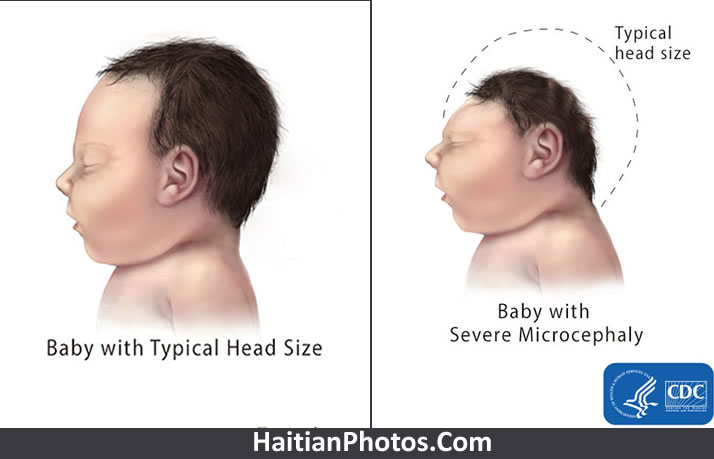
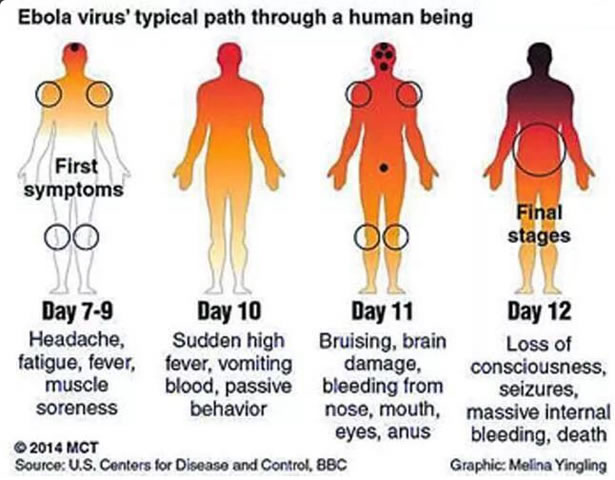
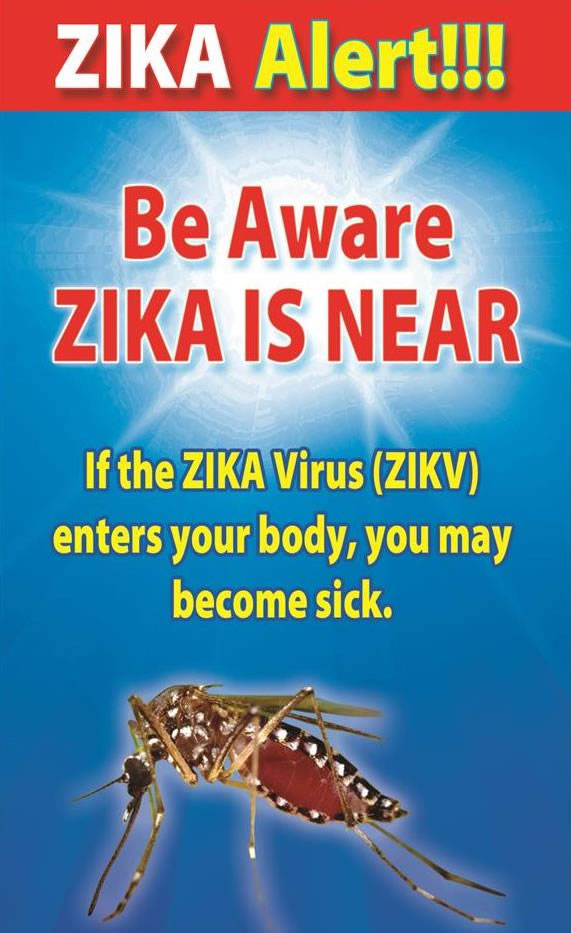
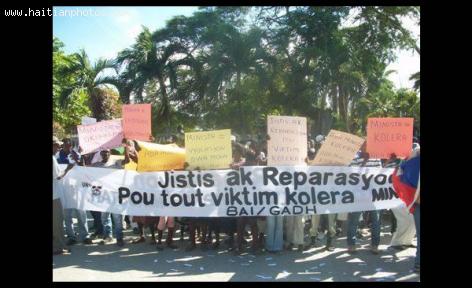


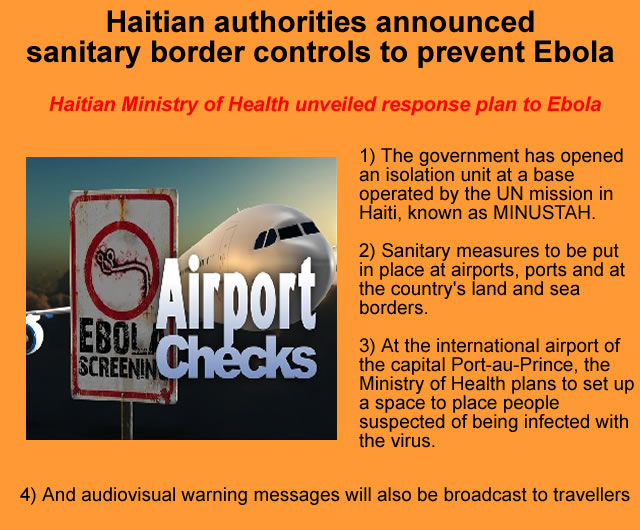
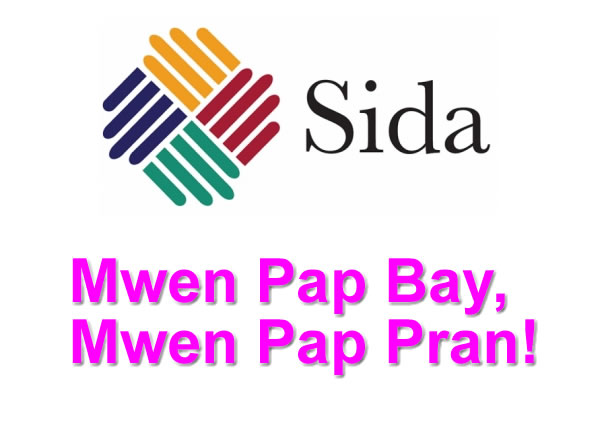
 François Nicolas Duvalier Potential Candidate for President of...
François Nicolas Duvalier Potential Candidate for President of...  Church Avenue Bakery Haitian Patties
Church Avenue Bakery Haitian Patties  orphanage founder Michael Geilenfeld falsely accused of abuse
orphanage founder Michael Geilenfeld falsely accused of abuse  Delimart Plaza, Delmas 32, Port-au-Prince, Haiti being looted
Delimart Plaza, Delmas 32, Port-au-Prince, Haiti being looted  Philippe Vorbe entered world football Hall of Fame, CONCACAF
Philippe Vorbe entered world football Hall of Fame, CONCACAF  Paul Eugène Magloire, born in Quartier Morin
Paul Eugène Magloire, born in Quartier Morin  Partial list of privileges enjoyed by Government officials in...
Partial list of privileges enjoyed by Government officials in... 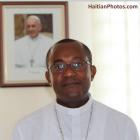 Pope Francis appointed Mgr. Launay Saturne Archbishop of...
Pope Francis appointed Mgr. Launay Saturne Archbishop of... 

